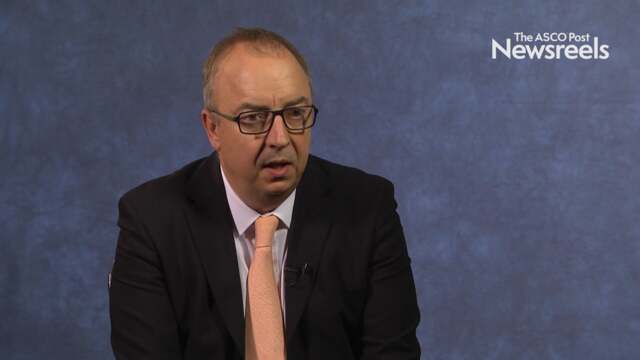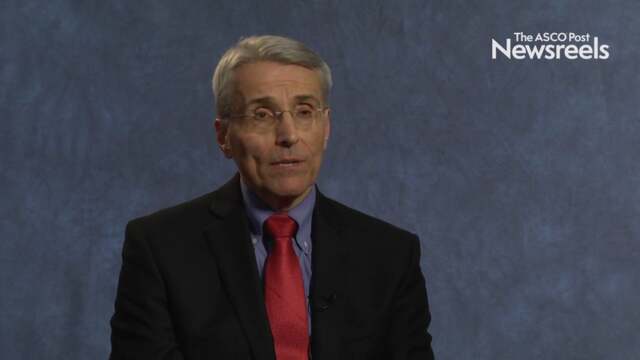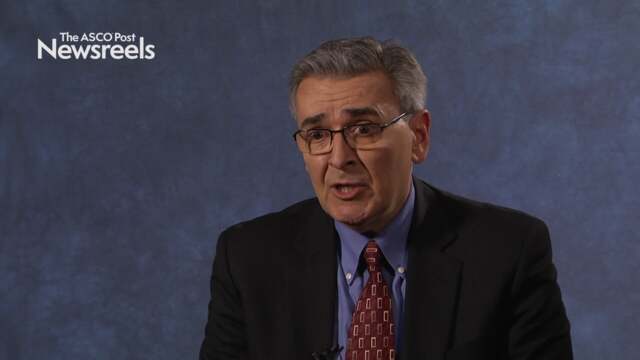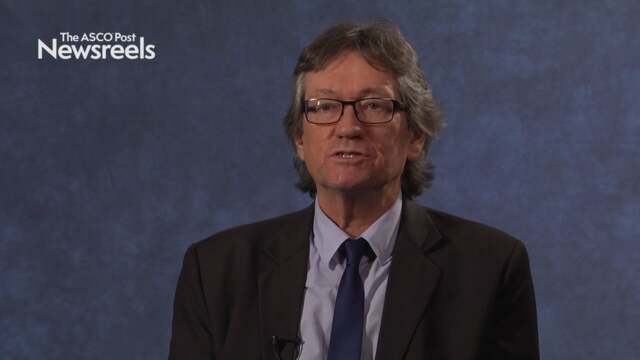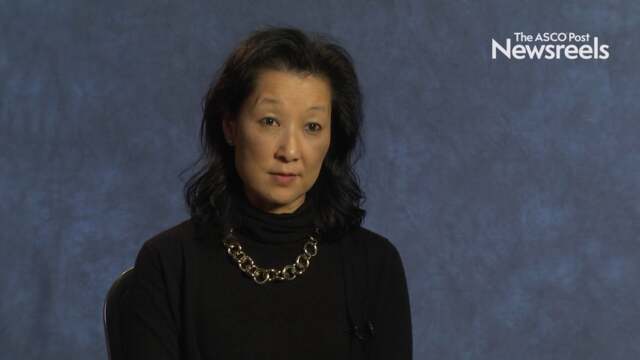Lynn J. Howie, MD, on ER+ Metastatic Breast Cancer: An FDA Treatment Analysis
2017 San Antonio Breast Cancer Symposium
Lynn J. Howie, MD, of the U. S. Food & Drug Administration, discusses a pooled analysis of outcomes of older women with hormone receptor–positive metastatic breast cancer treated with a CDK4/6 inhibitor as initial endocrine-based therapy (Abstract GS5-06).
Michael Gnant, MD, of the Medical University of Vienna, discusses phase III study findings on giving an additional 2 vs an additional 5 years of anastrozole after the first 5 years of adjuvant endocrine therapy (Abstract GS3-01).
Richard Pazdur, MD, of the U.S. Food & Drug Administration’s Oncology Center of Excellence, discusses the rapid changes in evaluating and approving new and effective agents, incorporating the view of patients in the process, and modernizing clinical trial design with broader eligibility criteria.
Joseph A. Sparano, MD, of Montefiore Medical Center/Albert Einstein College of Medicine, discusses findings that suggest circulating tumor cells 5 years after diagnosis are prognostic for late recurrence in operable stage II–III breast cancer (Abstract GS6-03).
Richard G. Gray, MSc, of the University of Oxford, discusses an Early Breast Cancer Trialists’ Collaborative Group meta-analysis of 21,000 women in 16 randomized trials, which showed that increasing the dose density of adjuvant chemotherapy by shortening intervals between courses or sequentially administering treatment significantly reduces disease recurrence and breast cancer mortality (Abstract GS1-01).
Eun-Sil Shelley Hwang, MD, of Duke University Medical Center, discusses study findings on primary endocrine therapy for estrogen receptor–positive ductal carcinoma in situ (Abstract GS5-05).
